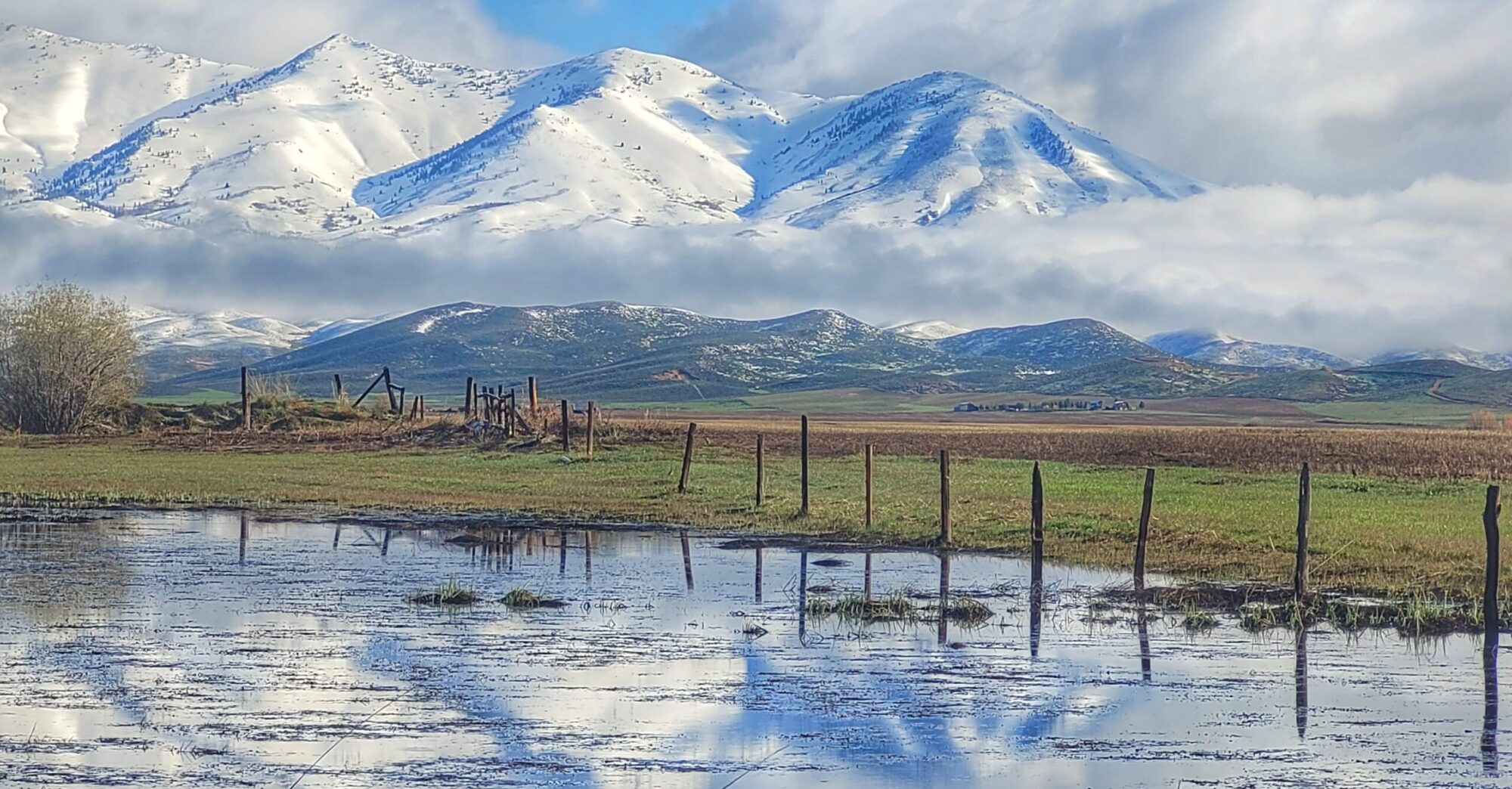Mist rose from the waters of the primal lake. The warm rays from the sun lit the early morning, bringing life to the creatures that inhabited the swamplands that covered the area. The day looked to be another hot and humid day.
Two men, Nog and Ooga, stood on the shore of the lake, overlooking the vast expanse, which included not only the large lake, but tall mountains, including a volcano which spewed ash and steam into the air. The men also spotted several animals roaming the area.
Nog looked toward his friend and said “Uk twaugo cam gwet valca.” {Translated to I believe a see a sabre-tooth tiger in the trees.}
Ooga replied, “Wetrup goonta cam hetratum guano.” {Good thing you brought your club.}
Nog held over his shoulder a large club, which he fashioned from a tree. While most of the animals around their cave were harmless, the sabre-tooth tiger was fearless, and often caused havoc to their clan.
Nog added, “Express cam American loopa.” {I never leave home without it.”}
Off in the distance, they heard a noise; a loud screeching sound followed by conversation and then laughter. They had heard these sounds before and knew they came from the dreaded pterodactyl who took to the skies each day, tormenting other animals. Nog and Ooga knew they were in for another day of primal entertainment.
The pterodactyl’s name was Perry. His twenty-foot wingspan and crowned skull was terrifying enough, but his sarcastic sense of humor and outwardly joy in dispensing pain gave Perry the nickname Terror of the Skies. Perry flew above the land, clutching a large club, similar to the one Nog carried. In fact, the rumor was that Perry spied Nog one day and carved his club in a much larger likeness of Nog’s club. Perry named his club The Assault Weapon, and used it when tormenting animals. His tormenting usually followed the same pattern. Perry would locate his prey, circle high above it, yell sarcastic and belittling comments its way, and then swoop down and pound his victim in the head with his club. Today would be no exception, and Nog and Ooga watched from afar as Perry chose his first victim.
Perry spotted a brontosaurus named Betty, partially submerged in the lake, eating leaves from large eucalyptus tree. Perry circled low over Betty and let out with a barrage of mean comments.
“Hey Betty. What a big butt you have. But you wouldn’t know since you have a brain the size of a walnut.”
“Go away Perry. You’re awful.” Betty exclaimed.
“Maybe we should call you Big Butt, Brain the Size of a Nut, Betty.” Perry laughed, as he swooped down and smacked Betty on the top of her head. “Have a good day, pea brain.” Perry remarked, as he flew off, in search of his next prey.
It didn’t take long for Perry to find one. Stuart the stegosaurus, walked along the shores of the lake. Perry headed toward Stuart, thinking of trenchant words he can spew. In no time, Perry was circling above Stuart, waving the assault weapon back-and-forth. Stuart stopped in his tracks, looked skyward, and prepared for the dreaded attack.
Perry shouted as he flew closer to Stuart. “Hello Stu. Question. Does it hurt when you sit on your tail?” He laughed at his quick wit.
“Leave me alone. You’re a mean old person who must have had a bad upbringing.” Stuart said, anticipating what would come next.
“How does it feel to always be followed by a bunch of pricks?” Perry laughed.
Again, he swooped low and bonked Stuart on the head with his club, and then flew off, screeching loudly.
Perry was having a grand morning. It was still early, and he’d already assaulted two unsuspecting victims. Looking for his third, he spied Thomas the tyrannosaurus rex sauntering though an open field. Perry flew toward the field, delighted in the knowledge that he would soon mock one of the most vicious animals around.
Circling above Thomas, Perry pronounced, “What’s up, Thomas? Try and catch me. Oh! You can’t with those measly, small stubs you call arms.”
Thomas looked up and shook his fist Perry’s way. Perry, of course could not see it and mocked Thomas more. “You waving to me? Hard to tell with those bitty protrusions you call hands perched on those small arms of yours.”
As he’d already done twice that morning, Perry flew down, club extended, ready to rap Thomas on his head. In one quick movement, Thomas swung around. His massive tail knocked Perry out of the sky. Perry fell dizzily at Thomas’ feet. Bending over, Thomas stretched as much as he could and grabbed Perry with one hand and the club with the other.
“This is what you get for your mean-spirited, brutal ways.” Thomas said, holding Perry as high as possible so he could look into the dazed pterodactyl’s eyes. Thomas swung his other arm and gave Perry three hard knocks on his noggin. Adding insult to injury, Thomas said “You’d best change your ways, you bird-brained, featherless, freak.”
Thomas released Perry, and then lifted one of his gargantuan legs and broke the assault weapon over his knee. He threw the broken parts of the club at Perry and said, “Now, be off with you and don’t come back.”
Perry flew off, empty handed, and without words. He left, never to be seen in the area again.
The moral of the story:
One doesn’t need assault weapons when small arms will suffice.

